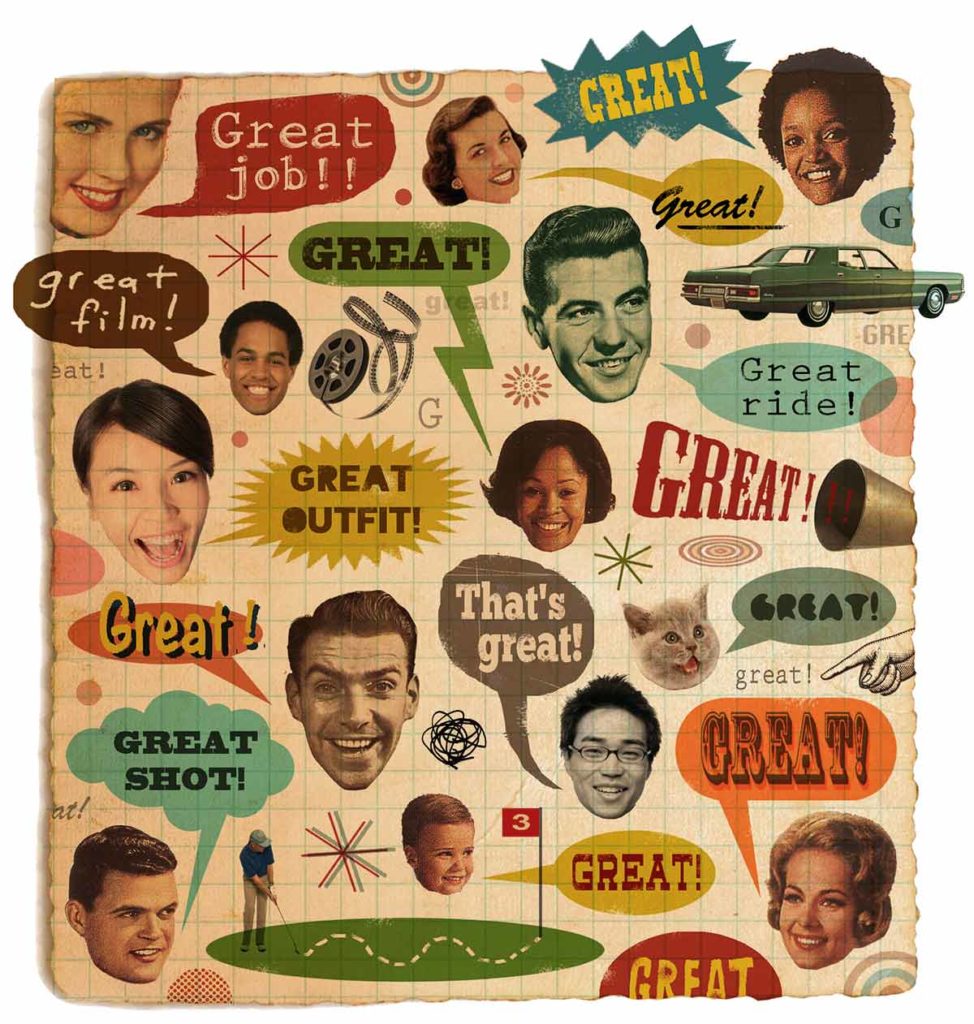
Greatness. Now that’s a word worth pondering, especially for anyone who likes words.
It is much overused, ascribed to a lot of things that are not really great — automobiles (Great ride!), fashion (Great outfit!), movies (Great film!) and sports (Great shot!). Even a 23-handicapper sinks a 40-foot golf putt now and then.
Merriam-Webster.com offers no fewer than 11 definitions of the word, ranging from “notably large in size” and “remarkable in magnitude” to “long continued” and “remarkably skilled.”
I think references to greatness should be reserved for God-made things — natural wonders and human beings. For that reason I favor Merriam’s ninth definition: “markedly superior in character or quality; noble.”
In nature, I find nobility in El Capitan and the giant sequoias in Yosemite National Park, the vast Dalecarlia Forest in Sweden, the Iguazu Falls at the Brazil-Argentina border, the coastline of Maine, and the Tahitian island of Bora Bora.
But human greatness is the greatest greatness of all. Abraham Lincoln, one of America’s “greatest presidents” supposedly was heard to say as he watched Walt Whitman trudge through a snowstorm outside the White House, “Now, there goes a great man.”
That’s more like it. Great takes your breath away, brings tears to your eyes and might even bring you to your knees.
Great is not easily forgotten — it impresses you, it imprints on you, and it becomes part of you. Great changes you; it improves you by its very existence.
Leaders — political and religious — generally have a better shot at achieving greatness than the average person does. Gandhi was assuredly such a man. Time and circumstance make that so.
In my lifetime, I think of U.S. Presidents John Kennedy and Ronald Reagan as great, along with Poland’s Lech Walesa, Pope John XXIII, and more recently, Blessed John Paul.
But greatness is not limited to those holding a formal religious or political leadership position. Marie Curie, physicist, Helen Keller, author and activist, and the First Lady of Civil Rights, Rosa Parks, all deserve to be called great.
Here is my personal Top 10 list of great humans and their greatest attributes: Aristotle (intellect), St. Paul (faith), Da Vinci (inventiveness), Joan of Arc (sacrifice), Wolfgang Mozart (creativity), Albert Einstein (curiosity), Clara Burton (compassion), Martin Luther King Jr. (passion), Winston Churchill (resolve), and Mother Theresa (purity). I would have included Jesus on the list, but the fact he is both God and man gives him an unfair advantage. Of the 10, St. Paul tops my list. He was to Christ what Steve Wozniak was to Steve Jobs, what Roy Disney was to Walt Disney. I cannot think of anyone in history whose life has affected so many other lives for the good of humankind more than St. Paul’s. (Jesus notwithstanding for the aforementioned reason).
These men and women from vastly different circumstances, countries of origin, and even eras of history nonetheless share traits. Chief among those attributes — more than intellect or formal education — are mind-numbing self-doubt, painful and personal sacrifice, steadfast resolve, deep faith, and the courage of a lion.
The thing about greatness is that it is always in such short supply. No duh there. That’s the nature of greatness. It is also true that greatness seems best recognized looking into the rear-view mirror to the past, rather than through the windshield of the present. Greatness lasts; like fine wine, its essence is enriched by the passing of time.
And there’s never been a time when we couldn’t use more of it — a little more genuine, awe-inspiring, jaw-dropping, gratitude-generating greatness.
Gerald Derloshon, an accredited screenwriter on the 1981 film “The Legend of the Lone Ranger,” is the author of several books, including “Little Man On Wheels: Surfing Legend Dewey Weber” (littlemanonwheels.com). He earned his bachelor’s and master’s degrees in communications from the College of Communication and Fine Arts.
